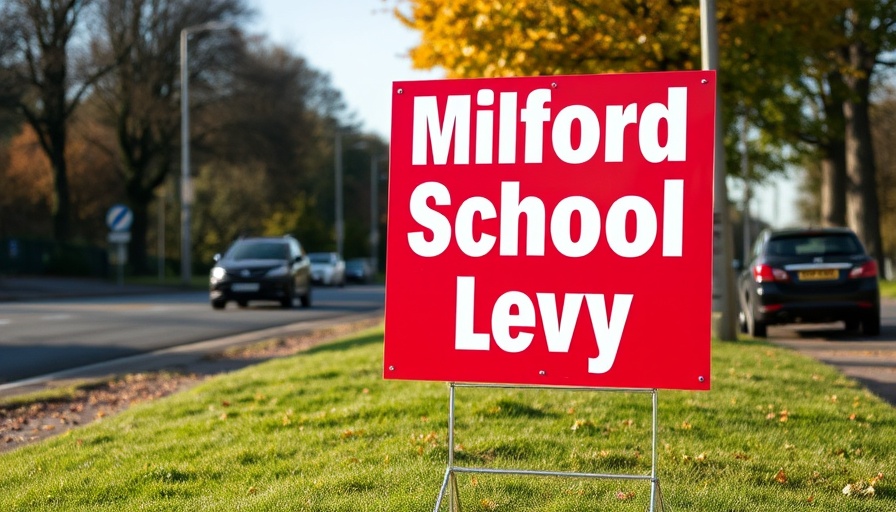
The Impact of Ohio's Proposed Bill on Election Communication
In the wake of increasing challenges faced by public school districts across Ohio, a significant measure has taken the center stage in state politics. House Bill 264, introduced by state Reps. Adam Mathews and Tex Fischer, seeks to restrict the flow of information regarding school levies, bonds, and candidate discussions during the crucial pre-election period. If passed, this legislation would prohibit government entities from disseminating any information related to elections during the 30 days leading up to an election, including communications that inform citizens about ongoing levies.
Understanding the Rationale Behind the Bill
Proponents of the bill, like Rep. Mathews, argue that such measures ensure that taxpayer resources are not used for electioneering. By limiting communications, lawmakers believe they can draw a clearer line between governing activities and electoral campaigning. Since public jurisdictions already cannot take partisan stances, extending this policy to a broader range of communications is deemed necessary to maintain the integrity of local governance.
Reactions from Educators and the Community
However, many, including educators like retired teacher Will Vickery, see this legislation as a detriment to voter education. The failure of numerous school levies has alerted local stakeholders to the risks associated with restricted communication. Vickery emphasizes that community awareness about school financing issues is critical—especially as programs and staff positions are on the line. Limiting information just before elections undermines efforts to educate voters on critical issues that matter to local children and educational programs.
Current School Funding Challenges
Ohio's public school districts have seen a troubling trend with multiple levies being voted down, which has led to severe financial repercussions. For instance, Parma City Schools have experienced seven failed attempts to pass levies since 2018, leading to significant cuts in educational programs and staff. The withholding of information during elections could exacerbate these funding issues, cutting off avenues for honest communication between districts and voters.
Counterarguments: A Narrowing of Public Discourse
Critics of H.B. 264 argue that restricting election-related discourse effectively mutes essential discussions that citizens need for informed voting. Some caution that while the intent may be to prevent biased influence, the side effect could mean voters are not adequately informed about the very measures that affect their schools and local services. Knowing what levies entail, the financial implications, and how they impact local governance are crucial for voters who want to make educated choices.
Future Implications of Such Legislation
The potential passage of this bill raises a critical question: what does it mean for democratic processes in local governance? Proponents argue that clean lines must be drawn to ensure fairness in elections; however, eliminating discussions on important concrete issues could alienate voters from the decision-making process. As future bills emerge, understanding the balance between government communication and electoral influence will be vital.
Informed Decision-Making is Paramount
As Ohio addresses these pressing challenges, it's paramount for local citizens and stakeholders to stay informed. Education about school funding levies and proposed legislative measures is crucial in a democracy. With the potential of bills like H.B. 264 impacting transparency, the role of community engagement and accountability in local elections grows even clearer.
In conclusion, while the intentions behind H.B. 264 may align with attempts to keep elections free from governmental sway, the practical implications may do more harm than good. Ensuring open channels of communication is essential not only for fostering community trust but also for driving a well-informed electorate.
 Add Row
Add Row  Add
Add 




Write A Comment